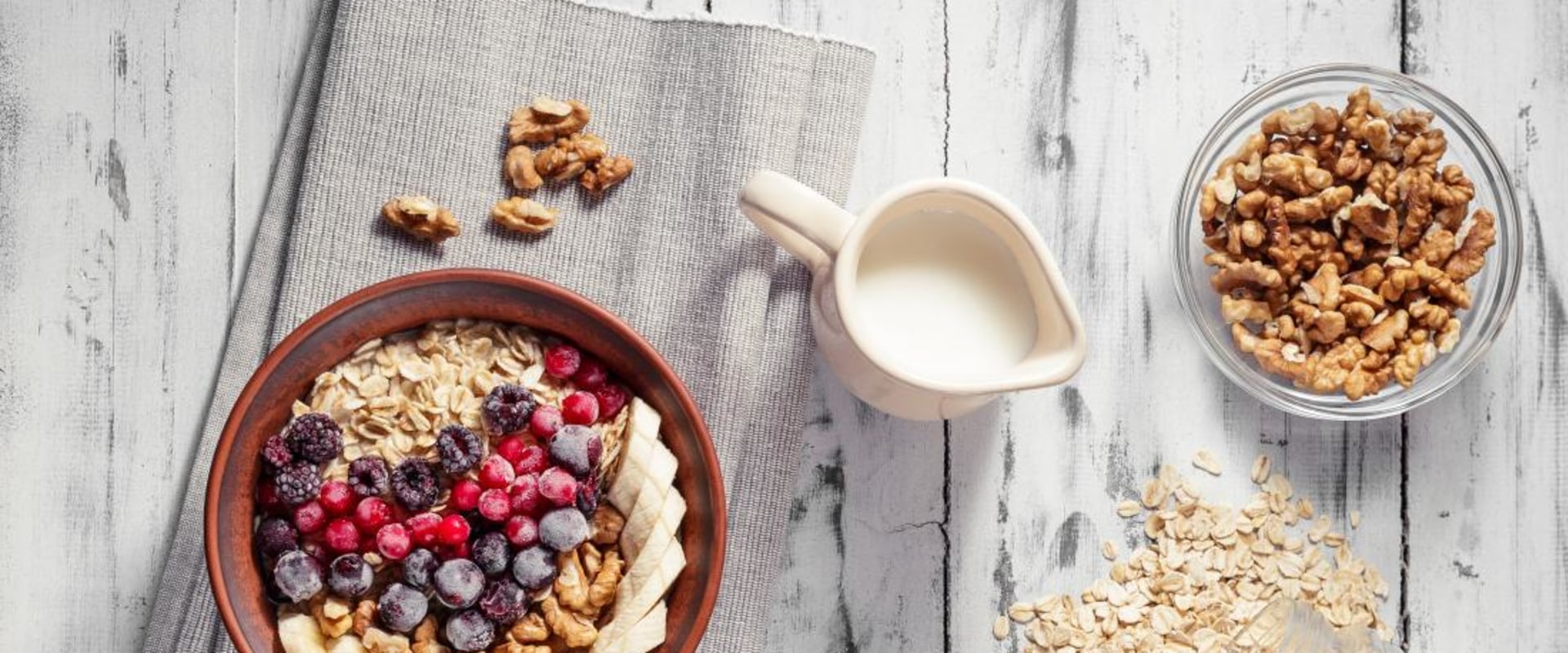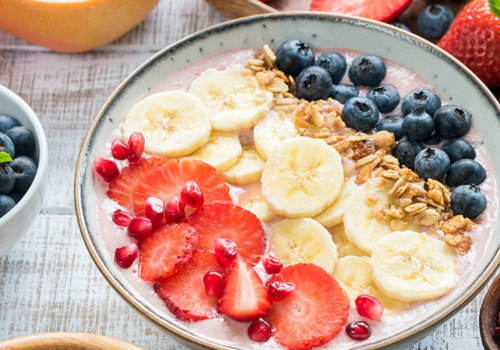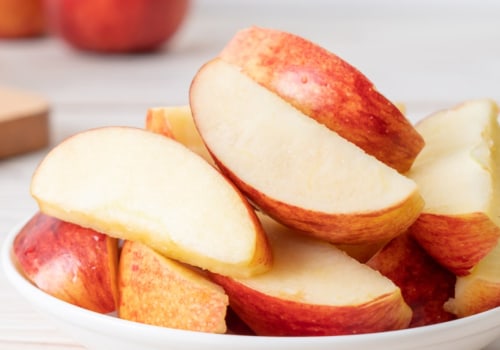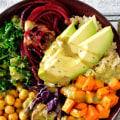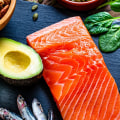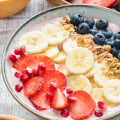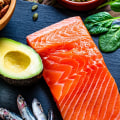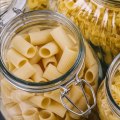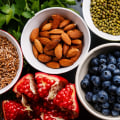Broccoli provides good amounts of fiber, calcium, potassium, folic acid and phytonutrients. Apples are an excellent source of antioxidants, which fight free radicals. Recommending salmon without reference to its origin seems incredibly naive and irresponsible. Much of it is produced in large fish farms that use industrial methods and may be polluting the oceans.
Wild salmon tastes better, but it's too expensive. Consumers don't get information about the real origin of wild salmon and how it's caught. If you're like most people who set out to make a New Year's resolution, you want to eat healthier, lose weight, or both. And if you're like most of us, your resolve has already begun to falter.
By February 1, most weight-related New Year's resolutions had been thwarted by unrealistic expectations, fad diets, frustration at not seeing results, and a host of other factors. Fat tends to get a bad reputation, but the body needs it to absorb vitamins A, D, E and K, not to mention to heal wounds. Fat is also the most slowly digested macronutrient (the order is carbohydrates, proteins and fats), so it promotes satiety and adds flavor to foods. Healthy eating and sustainable weight loss go beyond counting calories.
It's also more than just a matter of eating less and moving more. A variety of complex physiological and lifestyle-related factors contribute to how we gain weight and why each of us gains it differently. So here is a list of 10 everyday superfoods that are easy to eat, easy to find and to keep eating healthy, simple and delicious. All berries are great sources of fiber, a nutrient that most Americans don't get enough of.
Fiber helps keep the digestive system healthy and functioning properly (ahem). All berries are good for you, so be sure to mix them together. In winter, when berries aren't in season, get them frozen (without sweeteners), which are great for smoothies, oatmeal, or thawed yogurt. Raspberries (one of the best breakfast foods for weight loss) have the most fiber, 8 grams per cup, and also contain ellagic acid, a compound with anti-cancer properties.
The same amount of blueberries has half the fiber (4 grams), but is packed with anthocyanins, antioxidants that can help keep your memory sharp as you age. A cup of strawberries contains 3 grams of fiber, but more than the recommended dose for a full day of skin-firming vitamin C. Oats are a breakfast staple and a real superfood. Eating more oatmeal is an easy way to increase your intake of fiber, a nutrient that most of us don't get enough of.
Fiber is good for our bellies and waists and for keeping us full, all of which are very important qualities in a breakfast. In addition, oats are a whole grain and natural oats have no added sugar. For a superfood meal or snack, start with plain oatmeal and turn it into healthy meals and snacks, such as blueberry oatmeal cakes, homemade granola to enjoy with fruit and yogurt, or homemade energy snacks with peanut butter. Studies show that if you drink tea regularly, you can reduce your risk of Alzheimer's, diabetes and some types of cancer, in addition to having healthier teeth and gums and stronger bones (tea can also help you lose weight).
How? Tea is rich in a class of antioxidants called flavonoids. Regardless of the variety of tea you choose, maximize the power of your flavonoids by drinking it freshly brewed. If you want to store a batch of cold tea in the fridge, add some lemon juice; the citric acid and vitamin C in that splash of lemon, lime or orange help preserve flavonoids. Yogurt contains probiotics, or good bacteria, that help keep our intestines healthy.
Just 1 cup of yogurt provides almost half of the recommended daily value of calcium and provides phosphorus, potassium, zinc, riboflavin, vitamin B12 and proteins. Choose Greek yogurt to increase protein even more and, whenever possible, opt for natural yogurt. Flavoured yogurts tend to have a lot of added sugar, adding calories without needing to nourish. Fermented foods such as sauerkraut, but also kombucha, kimchi, miso and yogurt can help improve gut health, which translates into better overall health thanks to the connection between the intestine and the brain.
Despite the bad reputation that carbohydrates have had in recent years, whole grains are essential, especially when it comes to nourishing the brain, Bolte-Ruiz explains. The fat content of avocados may make you stop at first, but according to Axe, there's nothing to fear. In fact, the opposite is true. Berries such as raspberries and blueberries are rich in antioxidants and other nutrients, while being low in calories and have a low glycemic index.
Joey Thurman, CPT FNS of CES, a famous health expert, rates blueberries as one of his favorites in the group, and points out that their dark color and thin skin mean that they have to develop natural protection against the elements, which translates into a very high level of antioxidants. As with berries, be sure to choose organic produce when it comes to leafy greens. Axe points out that while choosing organic products whenever possible, it may never be more important than when it comes to this group of superfoods. Like sauerkraut, yogurt also contains healthy probiotics, not to mention a host of other nutrients.
Choose plain, full-fat yogurt with no added sugar for the most powerful benefits (such as any of these best nutritionist-approved, low-sugar yogurts) and combine it with berries or nuts for a triple dose of superfoods for breakfast or as a nutritious snack. Superfoods are a bit of a stretch, but they're also some of the healthiest foods you should eat every day. Australian dietary guidelines recommend eating one to three servings of foods from this group each day, depending on your age. If we're honest, it can be a bit overwhelming to find out exactly what foods are the best of the best you should eat on a daily basis.
It's easier than you think, and the first step to getting back to normal is to focus your next supermarket visit on the best foods to satisfy hunger and reduce cravings. Choosing and choosing foods that are actually good for you and that are likely to help you lose weight can be tricky. They are based on the best available science on the types and quantities of foods and dietary patterns that are believed to promote health and well-being and reduce the risk of chronic diseases and diet-related diseases. Henry Obispo, social entrepreneur, food justice activist and founder of BornJuice who works to improve food insecurity in the Bronx, agrees.
If you can't pronounce many of those ingredients, you're almost certainly holding a highly processed food in your hand. Foods with a low glycemic index (GI lower than 5) are slowly absorbed into the bloodstream and provide sustained energy throughout the day. Examples of foods with a high glycemic index are white and whole wheat bread, processed cereals, short grain rice, potatoes, crackers and watermelon. Eating a variety of these foods every day will provide you with the protein you need, as well as a variety of other nutrients, such as iodine, iron, zinc, vitamins (especially B1), and essential fatty acids.
. .
